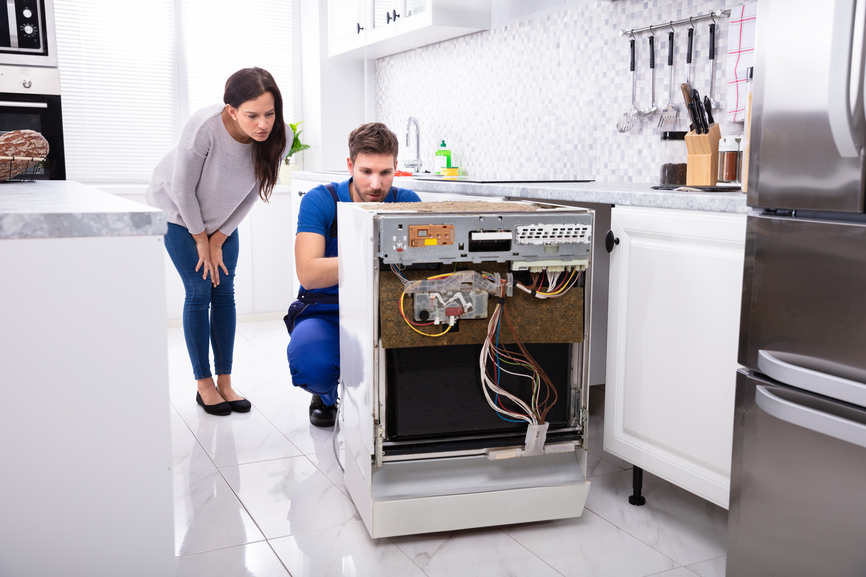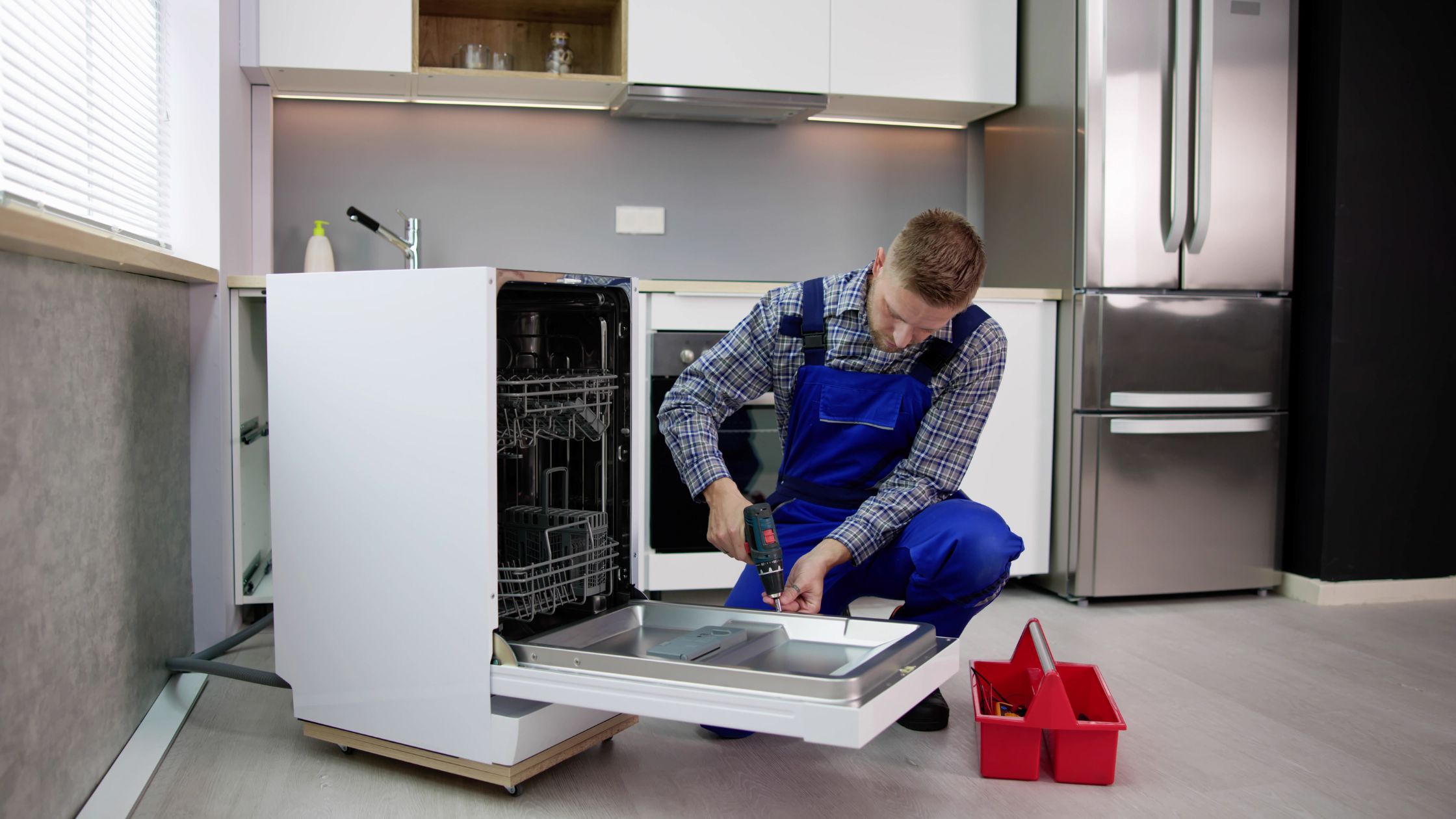Must-Know Dryer Maintenance Tips – Dryer repair Oro Valley Dependable Refrigeration & Appliance Repair Service
Must-Know Dryer Maintenance Tips – Dryer repair Oro Valley Dependable Refrigeration & Appliance Repair Service
Blog Article
The Ultimate Overview to Comprehending Home Appliance Fixing at Home
When your refrigerator quits cooling or your oven declines to warm, it can feel overwhelming. Comprehending device repair at home can save you time and money. You'll find out to identify symptoms, utilize important tools, and adhere to an organized troubleshooting process. Before you start, there are important safety and security preventative measures you need to take into account. What are the most typical issues, and just how can you repair them? Allow's discover the fundamentals.
Usual Device Troubles and Their Symptoms
When your appliances start breaking down, it's important to acknowledge the indicators early on. Overlooking them can result in larger issues and expensive repairs. If your fridge isn't cooling correctly, you might see warm areas or condensation developing. This might indicate a falling short compressor or a blocked vent.Your dishwashing machine may reveal issues with unclean dishes or uncommon noises throughout cycles. If you listen to grinding or clanking, it's time to investigate.A washing equipment that won't spin or drain can leave you with soaked washing, recommending a stopped up drain or a malfunctioning pump.Lastly, if your oven's temperature seems off or it takes forever to pre-heat, you could be taking care of a faulty thermostat. By staying sharp to these signs and symptoms, you can resolve problems before they intensify right into major repair services.
Necessary Tools for Device Repair
When you're taking on home appliance repairs in the house, having the right devices is important. Standard hand devices like screwdrivers and pliers will certainly aid you take apart and fix various appliances, while electrical testing gadgets ensure you're functioning safely with circuitry. Let's go over what you require to begin on your fixing trip.
Fundamental Hand Tools
Having the right tools is necessary for effective device repair work at home. Start with a trustworthy screwdriver collection, consisting of both flathead and Phillips kinds, as screws are typical in device assembly. Pliers are additionally vital; they assist with gripping, turning, and reducing cables or small components. A pair of needle-nose pliers can reach tight places quickly. You'll require an excellent flexible wrench for tightening up or loosening nuts and screws. An utility knife is useful for puncturing packaging or insulation. Finally, don't fail to remember a durable workbench or surface to safely organize your devices and parts. With these fundamental hand devices, you'll be well-prepared to deal with most appliance fixings that come your method.
Electric Testing Gadgets
Together with standard hand devices, electrical screening devices play a necessary duty in device repair. These tools aid you identify electrical concerns and assurance home appliances function safely. A multimeter is important; it measures voltage, present, and resistance, permitting you to pinpoint problems rapidly. A non-contact voltage tester is one more must-have, allowing you spot live cables without making direct contact, boosting your security. Secure meters are terrific for measuring present circulation in wires without disconnecting them, conserving you effort and time. Furthermore, circuit testers can promptly inspect if outlets are operating correctly. By utilizing these tools, you'll simplify your troubleshooting process and boost your repair abilities, making device maintenance a great deal less complicated.
Step-by-Step Overview to Diagnosing Appliance Issues
When your device acts up, it can be discouraging, but diagnosing the concern does not need to be frustrating. You'll find out to recognize typical problems and use effective repairing strategies. Allow's go through the actions to obtain your home appliance back in functioning order.
Usual Device Issues

Troubleshooting Strategies Clarified

Repairing Major Cooking Area Home Appliances: A Closer Look
Have you ever asked yourself just how to tackle usual concerns with your kitchen area home appliances? Repairing major kitchen home appliances like refrigerators, stoves, and dishwashing machines can be easier than you think. Beginning by recognizing the problem-- whether it's a refrigerator not cooling down or a stove that will not heat. Usually, a simple reset or inspecting the power source can address the issue.For refrigerators, tidy the condenser coils and inspect the door seals. If your stove's not heating, evaluate the burner and thermostat. Dishwashing machines may simply need a clean filter or a reset to get them back in activity. Always disconnect the appliance prior to diving right into repair services to ensure your safety.Don' t forget to consult the customer handbook for specific troubleshooting ideas associated with your design. With a little bit of perseverance and the right tools, you can with confidence deal with device repairs and conserve money in the process!

Fixing Washing Equipments: Tips and Techniques
When your laundry home appliances start breaking down, it can really feel overwhelming, yet fixing them doesn't have to be a headache. Begin by examining the power supply. Verify the appliance is connected in and the outlet is operating. Next, evaluate the door or lid switch; a malfunctioning switch can avoid the maker from operating.For washers, if it's not rotating, inspect for out of balance tons. Redistributing the clothes might solve the concern. If your clothes dryer isn't heating, clean the lint filter and inspect the air vent for blockages.Listen for unusual sounds; they can indicate a trouble. If your appliance is leaking, check the pipes for cracks or loose connections. Paper any error codes displayed on digital screens, as they can direct you in recognizing the issue. Ultimately, seek advice from the user manual for specific fixing pointers associated with your model.
Safety Preventative Measures to Take Throughout Services
Prior to you start any device repairs, it's vital to prioritize safety and security to avoid accidents or injuries. Disconnect the device or turn off the circuit breaker to ensure no power reaches it while you function. Usage shielded devices to reduce the danger of electric shock. Put on security goggles and handwear covers to secure yourself from sharp sides or debris (Maytag Washing machine repair Dependable Refrigeration & Appliance Repair Service).Make specific your office is neat and well-lit, so you can see what you're doing. Maintain children and pets far from the location to prevent diversions and possible risks. If you're taking care of gas devices, be extra mindful; check for leaks prior to proceeding.Take your time, and do not hurry through repairs. If you really feel unsure about any type of action, it's much better to stop briefly and research than to think. Adhering to these preventative measures will certainly aid develop a safer setting for your DIY appliance repair work job
When to Call a Specialist for Aid
How do you understand if it's time to employ an expert for home appliance repair work? If you have actually tried basic troubleshooting without success, it's a clear indication. If your home appliance still won't begin or reveals unusual sounds after resetting it, don't hesitate to look for specialist help.When you discover leaks, smoke, or burning smells, focus on security and call a professional right away. These concerns can lead to Our site more significant damage or posture dangers to your home.Also, if your home appliance is under guarantee, contacting an expert is commonly the most effective route. They can guarantee that repair work won't void your guarantee, conserving you cash in the long run.Finally, if you're unclear or uneasy with complex repairs, it's important to leave it to the experts. Remember, dealing with complex issues without the best experience can cause costly mistakes. Trust a specialist when unsure!
Frequently Asked Inquiries
Just How Can I Stop Home Appliance Problems in the Future?
To avoid appliance problems in the future, you need to do routine upkeep, check for wear and tear, tidy filters, and prevent overloading. Staying positive will help extend their life-span and keep them running smoothly.
What Are one of the most Usual DIY Appliance Repair Mistakes?
You could neglect security preventative measures, skip repairing steps, or use wrong devices when trying do it yourself device repair work. Hurrying the procedure or overlooking manufacturer guidelines can lead to more considerable problems and expensive blunders. Keep patient and notified!
How Do I Know if a Part Needs Substitute?
You can tell if a component requires substitute by inspecting for unusual sounds, leakages, or inconsistent efficiency. If the appliance has a hard time to run appropriately or reveals noticeable damages, it's likely time for a replacement.
Can I Make Use Of Generic Components for Appliance Fixes?
Yes, you can make use of common components for appliance repairs, but identify they work - Dependable Refrigeration & Appliance Repair Service Washing Machine Repair. Common components might save you cash, however they can affect performance or long life, so evaluate your choices very carefully washing machine servicing near me prior to choosing
What Warranties Cover Appliance Repairs?
Many device service warranties cover repair work for manufacturing defects, however they commonly omit damage from misuse. Check your service warranty terms meticulously, as some may need using certified specialists and initial parts for insurance coverage to remain valid.
Report this page